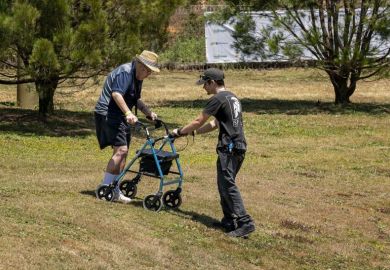A welcome consensus appears to be growing in Westminster about the need for a significant boost in training places for UK doctors. The Labour Party has already pledged to double the number of UK-funded medical school places, and The Times has recently been briefed that the government’s long-awaited NHS Workforce Plan will also make this commitment when it is published shortly.
There is a significant gap between the number of doctors we currently have in the National Health Service and the number we need to meet the demands on it. An additional 45,000 doctors would be needed to bring the UK up to the average number of doctors per capita in the Organisation for Economic Cooperation and Development; in their absence, the NHS is spending £3 billion annually on locums.
Boosting the supply of doctors, however, is not something that can be achieved through a one-size-fits-all approach. Rather, we need a bold, multi-pronged and comprehensive strategy. Preliminary indications suggest that the NHS Workforce Plan will announce on-the-job training programmes for apprentice doctors and nurses. But the government reportedly envisages that only one out of every eight new doctors will enter the profession through the apprenticeship route in the next 10 years. This still leaves a tremendous gap to be bridged.
Some new training places can be obtained by expanding the capacity of existing schools, but many are already bursting at the seams. There is also the opportunity to provide innovative new training opportunities in the community, as well as in hospital settings. However, this will not suffice either.
A complete solution also has to involve the provision of UK-funded places at the cluster of new independent medical schools being developed, such as the recently opened Brunel Medical School and our new medical school at the University of Surrey. Without UK-funded places, however, new schools such as ours are currently limited to offering places to international students, with only a small number of scholarships available for UK students (which, needless to say, are hugely oversubscribed). Even if UK students were willing to pay international-level fees, they would not be permitted to study with us.
The new medical schools are at slightly different stages of development, but we all have innovative curricula and partnerships lined up with local NHS providers to support placements. We also know that domestic demand wouldn’t be a problem. Large numbers of well-qualified and committed students are rejected from medical schools for capacity reasons every year. According to the Medical Schools Council, there were more than 28,000 applications to study medicine at UK universities in 2021 – with only 9,500 places available.
Our graduate entry route also aligns well with the government’s ambition to create new pathways into medicine, offering the opportunity to retain existing NHS workers – nurses, midwives and other practitioners – by allowing them new routes to progress their careers through medical qualification.
Furthermore, technological advances enable a greater role for remote access to specialist services, virtual clinics and other innovative approaches. At Surrey, we’re designing training in partnership with our NHS placement providers to ensure that our students not only get the hands-on clinical experience they need but also help to solve existing pressures on the NHS while they train.
New schools are particularly well placed to ensure that an expansion of places also contributes to a more future-proof profession. We at Surrey are focused on preparing doctors, whatever the qualification route, who are adaptable to the breakneck speed of progress in healthcare. We’ll be capitalising, in our teaching and research, on Surrey’s cutting-edge capabilities in areas such as AI technologies, promising automated analysis of vast amounts of medical data, and 6G technology, which could really open up the possibilities for remote healthcare.
We need genuinely innovative thinking when it comes to providing the extra doctors the UK so desperately needs. New medical schools such as ours couldn’t be much more “out-of-the-box” as part of the solution. And we are also out of the box in terms of our readiness to contribute. We have built it, and the students will come. If policymakers say the word, we could all respond quickly.
Juliet Wright is the founding dean of the University of Surrey School of Medicine.
Register to continue
Why register?
- Registration is free and only takes a moment
- Once registered, you can read 3 articles a month
- Sign up for our newsletter
Subscribe
Or subscribe for unlimited access to:
- Unlimited access to news, views, insights & reviews
- Digital editions
- Digital access to THE’s university and college rankings analysis
Already registered or a current subscriber?








